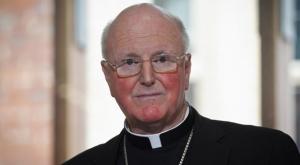I the last blog I talked about dual citizenship in a nation and in a transnational religion. Sometimes this is quite concrete. All Jews are by right citizens of Israel. The Chinese government still grants citizenship rights to ethnic Chinese, as does the German government to ethnic Germans for that matter. In other cases dual citizenship has less legal status in international law, but is arguably just as real. Christians are citizens of a nation-state and of God’s Kingdom, which is concretized in the universal church of Jesus Christ. Muslims are citizens of a nation-state but also the world-wide ummah or community of Muslims. Buddhists, Hindus, and others also have their transnational communities, each a potential rival to a nation-state and a possible source of divided loyalties.
So how do Christians reconcile our divided loyalties? How do we understand the divided loyalties of others?
One answer is to make religious loyalty primarily a matter of inner conviction, and citizenship primarily a matter of outward action. This is an old religious answer. We find it in the teaching of Taoism, in the Bhagavad Gita, in some forms of Buddhism as certainly in both the Islamic and Christian traditions. It rests on a fundamentally dualistic understanding of the self, one part of which is consciousness, spirit, or reason and the other part of which is a body. The body owes its loyalty to society, to the nation. The consciousness or spirit owes its loyalty to God, or truth.
Such a dualism has always been found insufficient by orthodox Christian teaching, as has any mind-body dualism. We are not just embodied spirits or embodied minds. We are conscious purposeful creatures whose every thought resonates through our bodily actions, whether we are aware of it or not. That is the way God created us, and it is the way that God expects us to act (at least if we believe the interpretation of scripture in the Christian tradition.)
So we can’t overcome our divided loyalties by letting our bodies go one way and our minds another. We must somehow integrate our obedience as citizens of God’s Reign with that our obligations as citizens of a nation.
And I want to propose a theology that allows us to do this. I won’t claim it is original. It has these basic assertions. First, that God has bequeathed sovereignty over each human first to that same human. We are our own sovereigns. Second, we as sovereign individuals organize our societies, including our governments to help us fully realize our human purposes. Third, for Christians this purpose is living within God’s Reign.
There are two political implications from these three principles. First, in a nation that has already granted sovereignty to the people, like the United States, there is no dual loyalty. We as Christians are already free to pursue God’s purpose for our humanity in the political realm. (In nations where the sovereignty of individual humans is denied the first Christian political obligation is establishment of the God-given sovereignty of individual humans.) Second, conflict arises not over competing claims for sovereignty, but over competing claims concerning the purposes of human life, and even specifically over what it means to pursue life in God’s Reign. Our political fights are not with the government – however well that plays in an election year. They are with our fellow citizens.
But, if our vision for humanity is essentially theological, based on faith in Christ, can we ever come to agreement with non-Christians? Can we ever, as people of many faiths with many different revealed understandings of the purpose of human life, share a common society and nation? Can we ever share sovereignty over a single nation? That is for the next blog.











